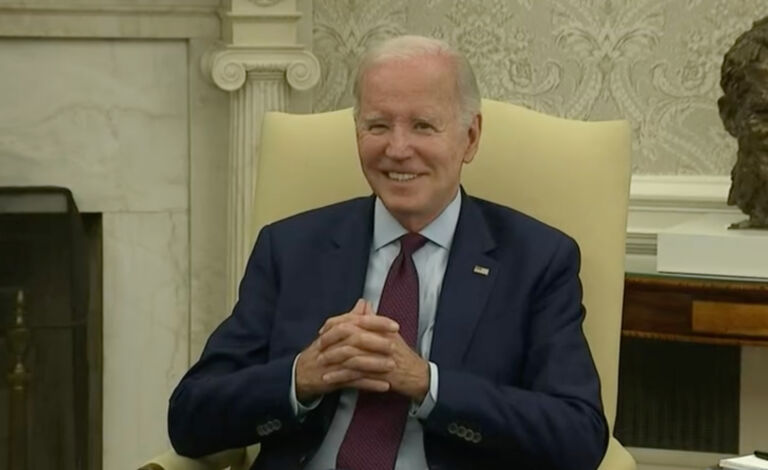John Rossomando explains at National Review Online why the president is wrong to identify climate change as the American military’s greatest challenge.
The Biden administration’s focus on climate change at the Defense Department is a case of misplaced priorities rooted in myths. The president, Defense Secretary Lloyd Austin, and the Joint Chiefs of Staff all have put climate change on par with China and Russia as threats. Austin said in January that climate change would factor into most of the Defense Department’s military planning, including the next iteration of the National Defense Strategy. The Pentagon will examine its “carbon footprint,” Austin said.
President Biden has made climate change, not Chinese and Russian aggression, his top priority. The Defense Department is proposing to dedicate $617 million to “fight” climate change in the president’s 2022 budget proposal to Congress. …
… Thus far, there’s little empirical evidence to support the notion that fossil-fuel emissions contribute to migration, terrorism, or other military threats to the U.S., its interests, or those of its allies. Emphasizing climate change either deliberately or incidentally ignores other reasons for mass migration, including political corruption, poor governance, and poor farming and irrigation methods. It’s an example of how a propaganda narrative can override provable facts. …
… Political narratives drive the agenda, not a critical examination of the empirically testable facts. The same goes for the barely noticeable impact of implementing the Paris Climate Agreement, which would reduce global temperatures by two-tenths of a degree Celsius.
In the Arctic, the Defense Department ought to be prioritizing access denial against Russia and China by deploying intermediate-range ballistic missiles and cruise missiles, building icebreakers, and deploying other assets to defend American interests instead of fussing over the kind of fuel being used by combat vehicles.
A Defense Department press release about President Biden’s 2022 defense budget stressed the importance of electric vehicles in the military’s response to global warming. However, a study conducted by the office of the U.S. Army’s deputy assistant secretary for research and technology could poke a hole in the strategy.


